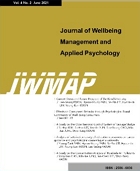- 권한신청
- E-ISSN2586-6036
- KCI
Does Individual's Income always Matter Happiness?: Evidence from China
WU, Renhong (Department of International Trade, Jeonbuk National University)
Abstract
As people's income rises dramatically, people's happiness seems not as high as expected. In fact, there are two different arguments about the relationship between income level and happiness. The focus of the debate is whether the correlation between income and probability of happiness is positive or negative. Therefore, we hypothesizes that the relationship between income and probability of happiness presents an inverted U-shaped curve. Then, this paper sets China as an example to explore the effect of income on happiness. The data from the Chinese General Social Survey (CGSS) in 2015 is employed to conduct empirical analyses under the Probit model and the Zero-Inflation-Passion model. The empirical findings indicate that the effect of income on happiness presents an inverted U-shaped curve and significantly in statistic. Meanwhile, spouse's income, educational level, marriage time and house property have a positive and significant effect on happiness. Conversely, age and local living standards have a negative and significant effect on happiness. Unfortunately, even though registered residence and children have a negative effect on happiness, they do not get through the significant test. In order to ensure the robustness of our empirical results, we test the robustness of the above empirical results by adjusting the sample size. The results of robustness test verify that our empirical results are robust. Moreover, this paper also makes a small contribution to the current literature with a sample from China.
- keywords
- Income, Happiness, Probit Model, Zero-Inflation-Passion Model, Inverted U-shaped Curve
- 다운로드 수
- 조회수
- 0KCI 피인용수
- 0WOS 피인용수














